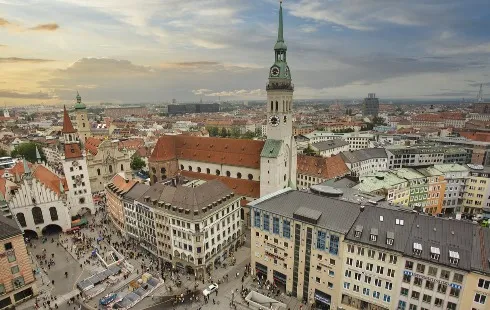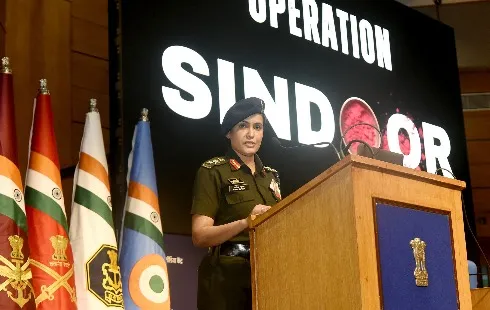
Gonadorelin Peptide: A Gateway to Understanding Endocrine Dynamics
Section: Science
When the political will is there, EU states can act quickly, very quickly. Just one day after the forced landing of a Ryanair plane in Minsk and the arrest of an opposition member on board, the heads of state and government took action. On Monday evening, they agreed on far-reaching sanctions against the regime in Belarus that dwarf anything that has gone before. The country is to be completely cut off from European air traffic. The state airline Belavia is to lose all landing and overflight rights in the member states. EU airlines are to avoid Belarusian airspace because it is no longer safe.
And that was not all. The EU's foreign affairs representative Josep Borrell is to make further proposals without delay on how the regime of ruler Alexandr Lukashenko can be hit economically. This refers to sanctions against certain sectors of the economy. The EU could now target the energy and chemical industries. As the world's largest exporter of calcium carbonate, the country relies on the Lithuanian port of Klaipeda - and to that extent can be hit. On Monday, the Lithuanian government had initiated a ban on land transports on its own initiative. The EU foreign ministers, who are meeting informally in Lisbon from Wednesday, will discuss concrete steps.
It is also expected that the Council will soon impose a fourth package of sanctions against the regime, including travel and asset freezes. It has been in the pipeline for weeks; Brussels is talking about the biggest package yet. Since October, member states have imposed punitive measures in three steps, including against the ruler himself and his eldest son, Viktor, the National Security Adviser. Those affected include others in the political leadership and government, senior officials in the Interior Ministry and its troops, the chairwoman of the Council of the Republic of the National Assembly, the Prosecutor General, several judges, the president of the state broadcaster, and several key economic actors. In total, 88 individuals and seven organizations are on the sanctions list to date.
Before the meeting, lawyers in the Council and the Commission had examined the option of withdrawing landing and overflight rights from Belarus. The result: the actions of the authorities in Minsk were a serious violation of the International Convention on Civil Aviation. Although the responsible authority, ICAO in Montreal, would have to investigate this in detail, it would not be possible to wait for months for the result. In view of the seriousness, immediate and forceful action was necessary, he said. Commission President Ursula von der Leyen and Council President Charles Michel campaigned in the European Council, without contradiction. Michel spoke of an "international scandal" that could not be tolerated, von der Leyen of a "kidnapping." There was also talk of "state terrorism." It was probably also about deterring others. Russian President Vladimir Putin, who may have supported the action in Minsk with agents, could also resort to such kidnappings, diplomats suggested.
The heads of government also discussed the tense relations with Russia. They have been marked by sanctions since the nerve gas attack on Alexei Nawalnyj. Foreign Affairs Commissioner Borrell saw the relationship at "rock bottom" when he traveled to Moscow in early February to sound out Russia's willingness to cooperate. The trip ended with his brusque rejection and the expulsion of diplomats, including a senior representative of the German Embassy in Moscow. Leaders had actually planned to hold a "strategic debate" on their relations with Russia back in March, but that was postponed at the time amid more pressing issues. Monday night's debate - with no advisers and no cell phones - was the first time in a long time that the heads of government dealt with Moscow in depth.
Decisions were not planned. According to the prepared conclusions, Borrell was to be tasked with presenting a report on relations by the next Council meeting in a month. The European Council had taken a similar approach toward Turkey, where Borrell presented options for both further sanctions and closer cooperation. With Russia, there is a commitment: The states remain committed to the five principles they established in spring 2016, at the time in response to Russia's annexation of Crimea and support for separatists in eastern Ukraine.
To date, the principles describe a minimal consensus between those states in the east that see Moscow primarily as a threat and those states in the west, including Germany, that continue to seek constructive cooperation with the Kremlin. On the one hand, the economic sanctions that the EU imposed on Russia in 2014 are not to be lifted until the Minsk Agreement of 2015 has been fully implemented. This means, in particular, that Ukraine regains full control over its eastern border and, at the same time, initiates a decentralization process that allows for local self-government and elections in the occupied territories.
On the other hand, "selective cooperation" is to remain possible in selected fields. This applies in any case to the nuclear agreement with Iran, whose guarantors are the EU and Russia. It is also undisputed that the country should be closely involved in UN climate policy. But beyond that, there is no consensus. Berlin, for example, sees energy policy and Nord Stream 2 as part of selective cooperation, while more and more countries, including France, reject this gas pipeline.
The heads of government also have yet to decide how to respond to the recent escalation between the Czech Republic and Russia. Both sides had expelled most of the other side's diplomats after Prague blamed Moscow for a 2014 explosion at an ammunition depot. The European Council condemned the Russian actions as "unlawful and provocative," as well as a Russian spy ring in Bulgaria. "The EU will remain united in the face of such acts," the conclusions say in an evocative tone. But will there be consequences? The heads of government will have to answer that question in a month at the latest.
Image by Dirk Daniel Mann

Section: Science

Section: Health

Section: Arts

Section: Health

Section: Science

Section: News

Section: News

Section: Health Insurance

Section: Health

Section: News
Health Insurance in Germany is compulsory and sometimes complicated, not to mention expensive. As an expat, you are required to navigate this landscape within weeks of arriving, so check our FAQ on PKV. For our guide on resources and access to agents who can give you a competitive quote, try our PKV Cost comparison tool.
Germany is famous for its medical expertise and extensive number of hospitals and clinics. See this comprehensive directory of hospitals and clinics across the country, complete with links to their websites, addresses, contact info, and specializations/services.
What do you get when you blend the tradition of American stand-up comedy with themes that are anything but funny? Pair that with a captivating performer and author like Claus von Wagner, and you're guaranteed a fantastic evening. Projekt Equilibrium is his latest program, which explores the quest...



No comments yet. Be the first to comment!